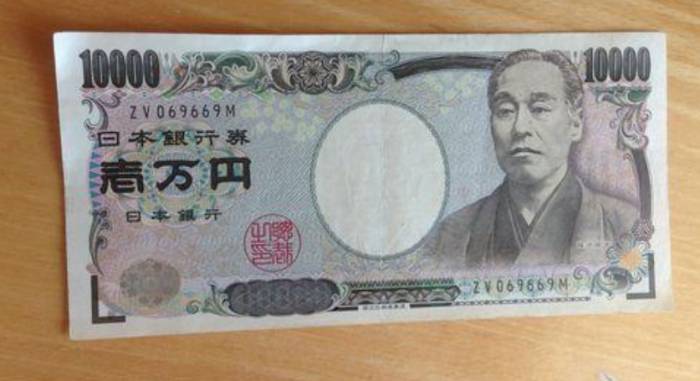At the end of April, the Bank of Japan welcomed its first interest rate meeting since the new governor took office. Is this the beginning of Japan's counteroffensive against the US dollar?
Most likely not, but the countdown has become increasingly shorter. It is widely predicted that the Bank of Japan's 180-degree turn is very likely to begin in June.
Coincidentally, June also marks the deadline for the United States' debt ceiling crisis. The combination of these two factors indeed presents the best opportunity for the yen to launch a counteroffensive.
Perhaps a grand financial and monetary war is about to begin.
01. The United States is forced to raise interest rates
Although the United States is mired in crisis, it may still continue to raise interest rates in May this year.
Some may ask, why does the United States continue to raise interest rates amidst a banking crisis? Is the United States not concerned that raising interest rates could lead to the collapse of their economy?
The financial crisis may trigger a run on bank deposits, and the run could force banks to sell U.S. Treasury bonds to prepare the necessary funds.
The last time Silicon Valley Bank was on the brink of bankruptcy, it was planning to sell assets. Now, First Republic Bank, facing a crisis, also plans to sell $100 billion in assets to cope with the decrease in deposits.
Such a vicious cycle makes U.S. assets extremely dangerous.We observe that not only money market funds, nor just bonds, nor even the U.S. stock market alone, but also including the U.S. real estate market, could potentially face a chain reaction of defaults.
02, The Yen Counteroffensive is About to Begin
Nevertheless, the Federal Reserve still plans to raise interest rates, which is a move of necessity.
It is not solely to combat inflation, but more importantly, to address the potential significant devaluation of the U.S. dollar, as the U.S. is well aware that a substantial devaluation of the dollar would pose a greater risk to U.S. Treasury bonds.
However, even if the Federal Reserve raises interest rates, it must still consider the stance of the Bank of Japan.

On Tuesday, the Governor of the Bank of Japan emphasized that Japan will continue to maintain an accommodative monetary policy for now, but he did not commit to how long this will last. This is because he also pointed out that if inflation continues to exceed expectations and wage income grows robustly, then the Bank of Japan will adopt an interest rate hike.
The U.S.'s worst fears are about to be realized, as investment banks widely predict that the Bank of Japan's policy will shift in June this year.
As the world's third-largest economy, which has not raised interest rates before, allowing the yen to depreciate, and even having to resort to a 90 trillion yen intervention to save the yen's exchange rate, it can be said that Japan has already paid a sufficient price before this.
But now, once Japan launches a counteroffensive and begins to enter an interest rate hiking cycle, it will be a severe blow to the U.S. dollar's exchange rate.
As for the conditions for an interest rate hike claimed by Japan—namely inflation and wages—they have actually been gradually met.In the latest data, Japan's core CPI has reached 3.1%, and the core CPI for the entire fiscal year has also risen to 3.0%, marking the highest level in 41 years. Concurrently, this year's Spring Offensive results indicate that Japan has seen the largest pay raise in nearly 30 years. As a result, over 60% of economists currently believe that the Bank of Japan will adjust its future monetary policy. The prelude to a counteroffensive is about to unfold.
03. Purchase of Renminbi Bonds
In the 1990s of the last century, after a sharp attack by the US dollar, Japan's economic bubble eventually burst, leading to a significant drop in the value of the dollar. Consequently, Japan's stock and real estate markets had to be halved in value. For more than 30 years thereafter, the Japanese economy has remained sluggish, mired in severe deflation.
Now, Japan has finally waited for an opportunity that could potentially turn the tide of the nation's fortunes. There is also a significant opportunity here, which is the US debt ceiling. The US Treasury is currently using its last temporary quota to delay a default on US debt, and it is very likely that the final deadline will be in June.
In preparation for this, Japan is making its final arrangements, continuously selling off the remaining US debt it holds. Additionally, an increasing number of financial institutions are starting to purchase Renminbi bonds. Compared to US Treasury bonds, Chinese government bonds offer much higher investment value. China's CPI in March rose by only 0.7% year-on-year, which, when compared to the 2.84% yield of 10-year government bonds, ensures that holding these bonds can yield a positive return after accounting for inflation.Moreover, once Japan raises interest rates, the US dollar will depreciate even more, but the Chinese yuan will not be affected, which is enough to ensure exchange rate stability. This is also a major attraction of Chinese yuan bonds.